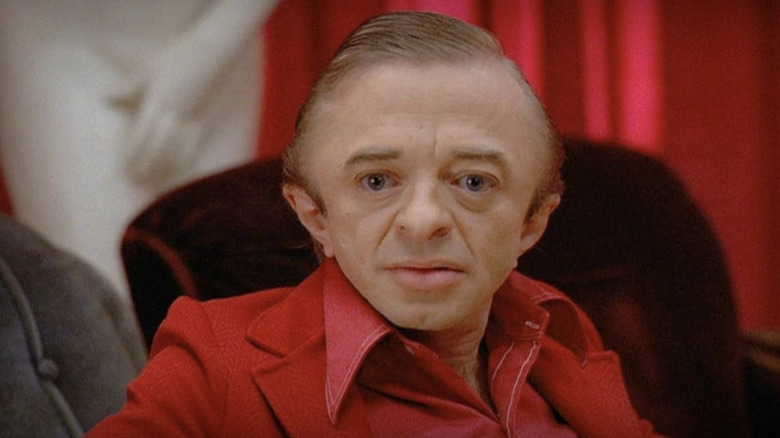Ernesto S. Ruscio/Getty Images
As a man and an artist, David Lynch is a puzzle that’s interlaced with a cosmic genius which we can only aspire to comprehend. The iconic figure left our earthly realm at the ripe age of 78, leaving behind an unparalleled legacy of cinematic, television, and narrative accomplishments. Even what is regarded as his “least successful” film is superior to the best of many filmmakers. His short film from 2007, “David Lynch Cooks Quinoa,” is a mesmerizing piece of short-form cinema that simply features the renowned director cooking quinoa – and his recipe is quite delicious, by the way.
Lynch’s unique and individual creativity has helped us make sense of our own existence. His distinct perspective on the world was so unique that we had to coin the phrase “Lynchian” to try and grasp it. His work has inspired countless others and is the reason many have fallen in love with cinema. But, there will never be another like him.
Which makes it all the more perplexing that one of Lynch’s most passionate projects never saw the light of day despite four decades of effort.
After the success of his 1977 film “Eraserhead,” Lynch embarked on a new project titled “Ronnie Rocket: or The Absurd Mystery of the Strange Forces of Existence.” He intended it to be his next feature film, but lack of funding led him to put it aside and instead work on what would become another classic, “The Elephant Man.” He revisited the project in the 1980s, but by that time, he felt it was a lost cause.
What is Ronnie Rocket about?

ABC
“Ronnie Rocket” is an intriguing tale about a detective who attempts to access a second dimension by standing on one leg. His journey is hindered by a bizarre realm of rooms, a train, and a group known as the “Donut Men” who use electricity as a weapon. However, the title references a young dwarf named Ronald d’Arte, who stays alive by being connected to an electrical supply and wields power over electricity to create music or cause havoc. He befriends a tap dancer named Electra-Cute and goes by the name Ronnie Rocket. These two narrative threads take place in separate but interconnected worlds – a recurring theme in Lynch’s work. “Ronnie Rocket” may seem absurd on paper, but knowing it comes from Lynch makes it completely plausible.
Several of Lynch’s signature motifs are present in the project, including the critique of America’s idealized view of 1950s culture, and characters with disabilities portrayed in ways most filmmakers wouldn’t dare or be able to. It would have been his first color film, inspired by Jacques Tati’s work. Dexter Fletcher and Michael J. Anderson, who later appeared in “Twin Peaks,” were both considered for the title role at different times. Brad Dourif, Dennis Hopper, Jack Nance, Isabella Rossellini, Harry Dean Stanton, and Dean Stockwell were also sought for roles in the film, and they all eventually appeared in other Lynch projects.
Regrettably, many of the financiers interested in the project went bankrupt before the film could be produced, including Dino De Laurentiis’ De Laurentiis Entertainment Group and Francis Ford Coppola’s American Zoetrope. It remains one of the most talked-about unmade films in the history of cinema.
Credit: www.slashfilm.com


